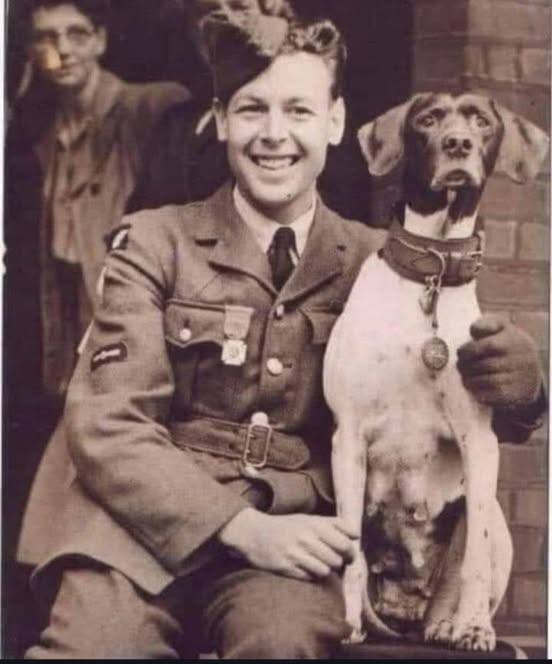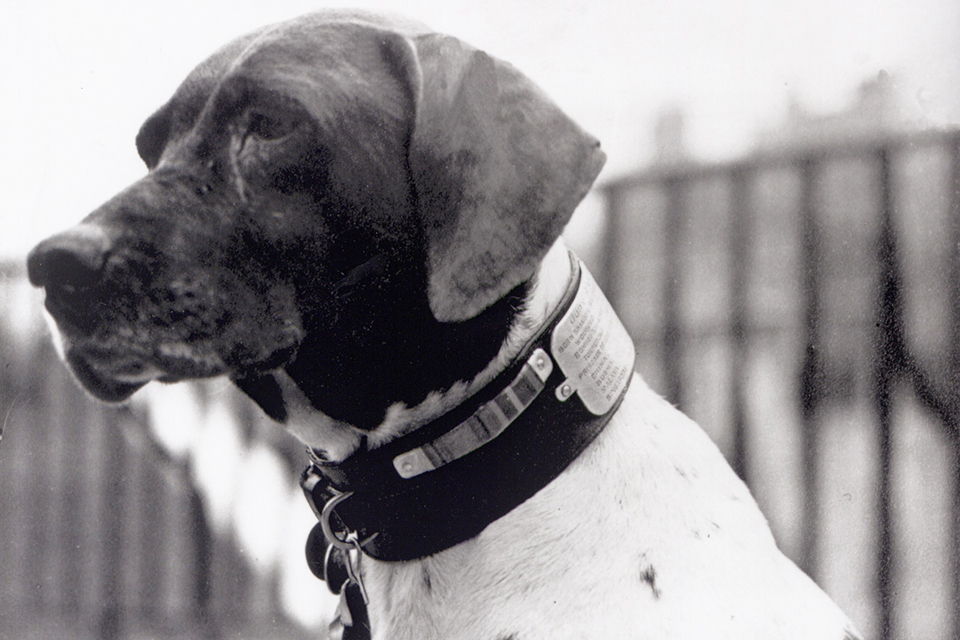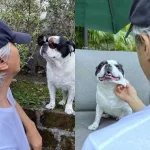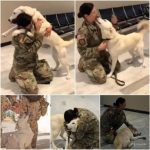Judy the War Hero: The Only Dog to Become a WWII POW

Judy the War Hero: The Only Dog to Become a WWII POW
Among the countless stories of courage and companionship during World War II, few are as remarkable as that of Judy, a liver-and-white pointer who defied the odds, lifted the spirits of prisoners, and became the only dog officially registered as a prisoner of war.
Judy was no ordinary dog. Born in Shanghai in 1936, she eventually found her way aboard Royal Navy gunboats patrolling the Yangtze River. She quickly became part of the crew, known for her keen senses and gentle nature. But in 1942, when the British gunboat HMS Grasshopper was attacked and forced to land on an island near Sumatra, Judy’s life—and the lives of the men around her—changed forever.
Captured by Japanese forces, Judy and the surviving crew were sent to a brutal prison camp. It was there that Judy met Leading Aircraftman Frank Williams, a British airman who had also been taken prisoner. Despite having little food himself, Frank noticed the skinny, scared dog and offered her some of his meager ration of rice. That moment sparked a bond that would last through unthinkable hardship.
Judy was more than a companion—she became a guardian and morale booster for the prisoners. She could sense danger, warning them of approaching guards or wild animals, and often drew attention away from men who had broken the rules. In return, the prisoners protected her as one of their own.
When the prisoners were ordered to be moved back to Singapore, Frank couldn’t bear to leave Judy behind. Knowing she wouldn’t survive without him, he risked everything by hiding her in a sack of rice. Amazingly, Judy remained completely still and silent during the inspection process, escaping detection.
But their troubles weren’t over. During the journey, their ship was struck by a torpedo. Amid the chaos and sinking wreckage, Frank managed to push Judy out through a porthole, urging her to swim to safety. He escaped too, but was quickly recaptured by Japanese forces. He assumed Judy had perished in the attack.
Days later, at a new camp, Frank was sitting despondently when suddenly a familiar blur of fur and wagging tail leapt onto him. Judy had survived. Against all odds, she had found him again.
Their reunion gave Frank the strength he needed to endure another year in the brutal conditions. Judy, too, continued to serve as a source of hope and courage to all who knew her. She helped the prisoners feel human in a place where humanity had all but vanished.
After the war, Frank once again took a huge risk—smuggling Judy aboard a ship bound for England. There, she was hailed a hero and awarded the prestigious Dickin Medal, often described as the animal equivalent of the Victoria Cross. Her medal read: “For magnificent courage and endurance in Japanese prison camps which helped maintain morale among fellow prisoners and also for saving many lives through her intelligence and watchfulness.”
Frank and Judy went on to travel across Britain, visiting the families of fallen POWs and bringing comfort to many. Judy lived out her remaining years with Frank, never leaving his side.
When she passed away at the age of 13, Frank was devastated. He built a stone memorial in her honor, a permanent reminder of a bond forged in war and sealed with love.
Judy’s story remains one of the most extraordinary examples of loyalty, bravery, and the unbreakable connection between a man and his dog. In the darkest corners of history, she was a light—and she has not been forgotten.











